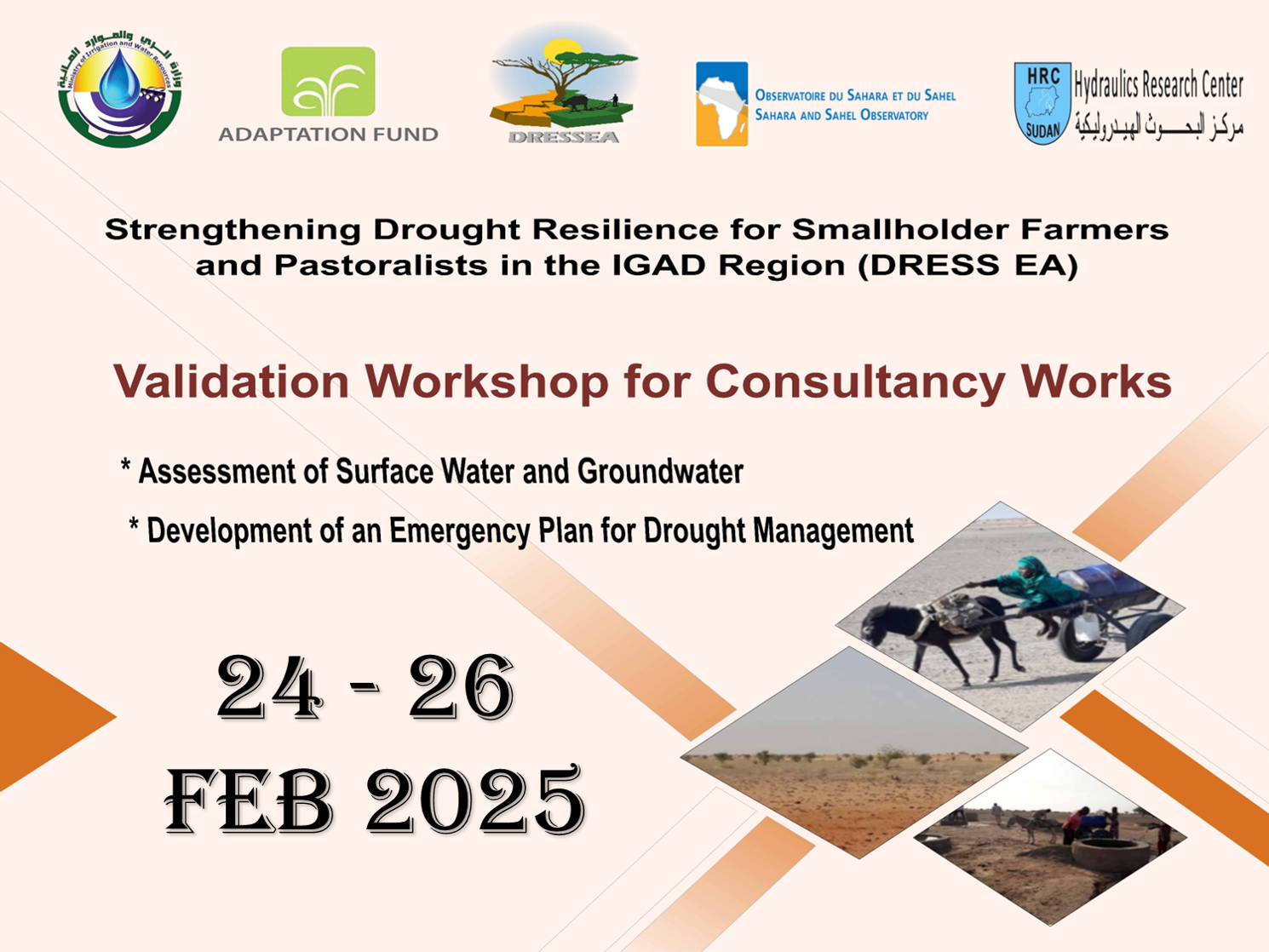Day 1: 24/02/2025
The first day of the workshop for the DRESS EA Project (Strengthening Drought Resilience for Smallholder Farmers and Pastoralists in the IGAD Region) began with welcoming speeches from the Director General of the Hydraulic Research Center (HRC), who emphasized the importance of the project in addressing drought challenges in the region. This was followed by an opening speech from the Minister of Production and Economic Resources, who highlighted the project’s role in enhancing local capacities to tackle the impacts of drought.
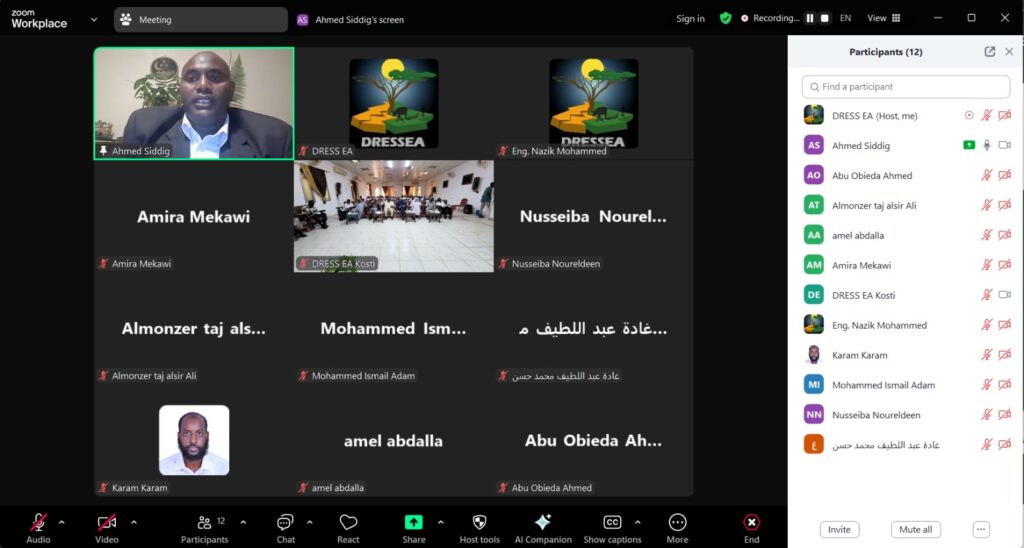
The project team presented a detailed overview of the project’s progress,
followed by a briefing by the Drought Management Consultant, Dr. Ahmed Siddig, who outlined the emergency response plan to address the impacts of drought on farming and pastoral communities.
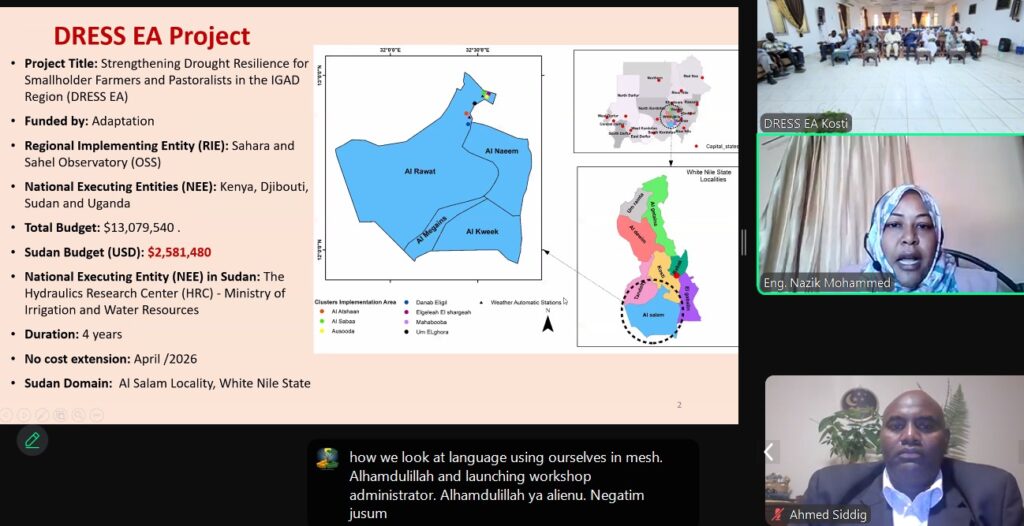
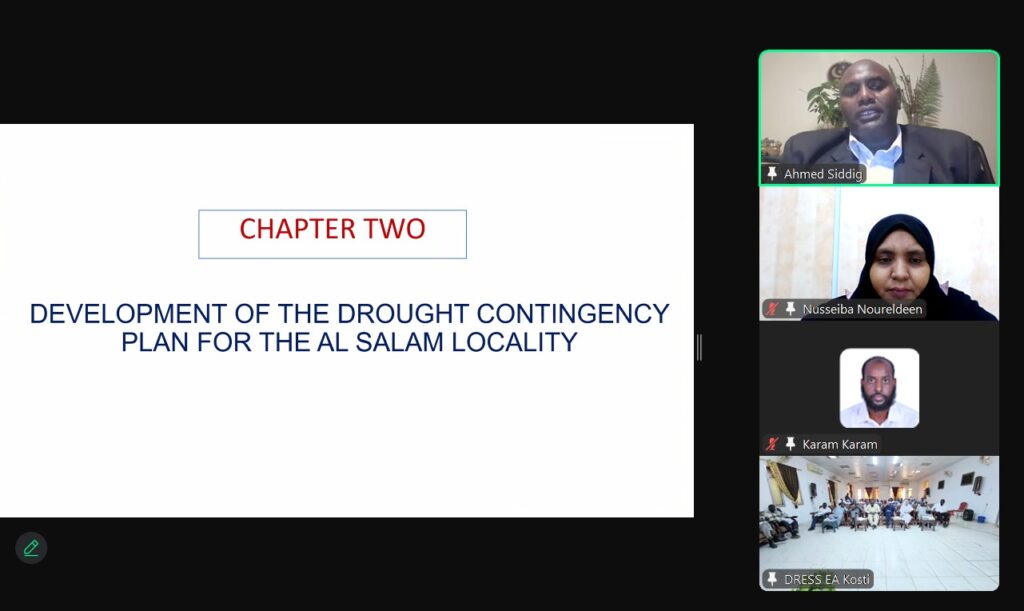
In the following session, the Drought Management Plan was discussed, focusing on strategies to enhance the local community’s capacity to adapt to drought. Participants contributed their ideas and suggestions for effective implementation through a constructive discussion.

Day 2: 25/02/2025
The second day began with participant registration and welcoming remarks from the Director General of the HRC. The Project Management Unit (PMU) provided a summary of Day 1 outcomes, reviewing the Drought Management Plan and capacity-building strategies for drought resilience in Sudan.
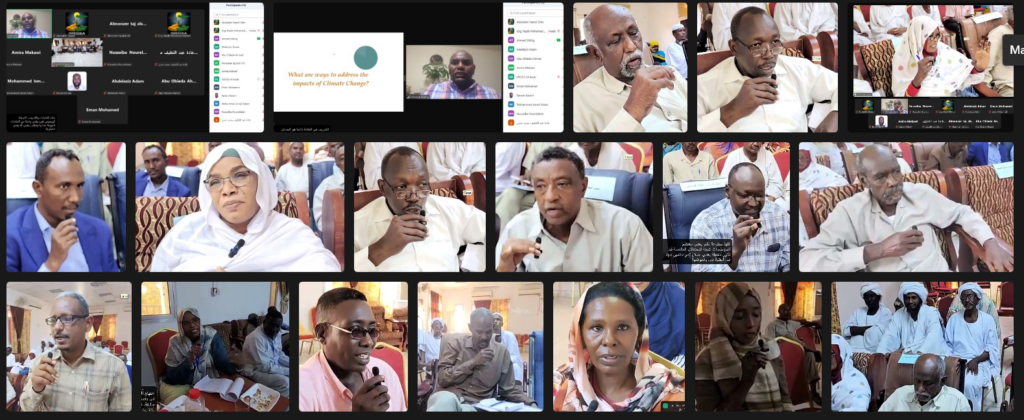
Dr. Ahmed Siddig presented his proposals for training programs aimed at equipping farmers and pastoralists with effective tools and methods to cope with drought. The session involved a discussion on the importance of designing training programs that are locally tailored and can address environmental challenges effectively.
In the closing session, the PMU team provided concluding remarks, highlighting key recommendations and the next steps to ensure the effective implementation of initiatives. They emphasized the importance of continuous coordination between all stakeholders.
Day 3: 26/02/2025
Day 3 was dedicated to consultations on water resources assessment, The day opened with welcoming remarks from the Director General of HRC, followed by a briefing from the project coordinator on the water resources assessment consultancy, which aims to improve the management of water resources in the region.
This was followed by a presentation from the RICOS team on the water resources assessment study, outlining the methodology and key findings. The presentation focused on the use of environmental models to assess water resources and the impacts of drought on local communities’ ability to adapt to water challenges.
After breakfast, the discussion continued with a focus on proposed interventions for water harvesting and soil conservation. The presentation highlighted the importance of these interventions in improving water-use efficiency and protecting agricultural lands. Discussions centered on how these solutions could integrate into broader water management strategies for tackling environmental challenges specially drought.
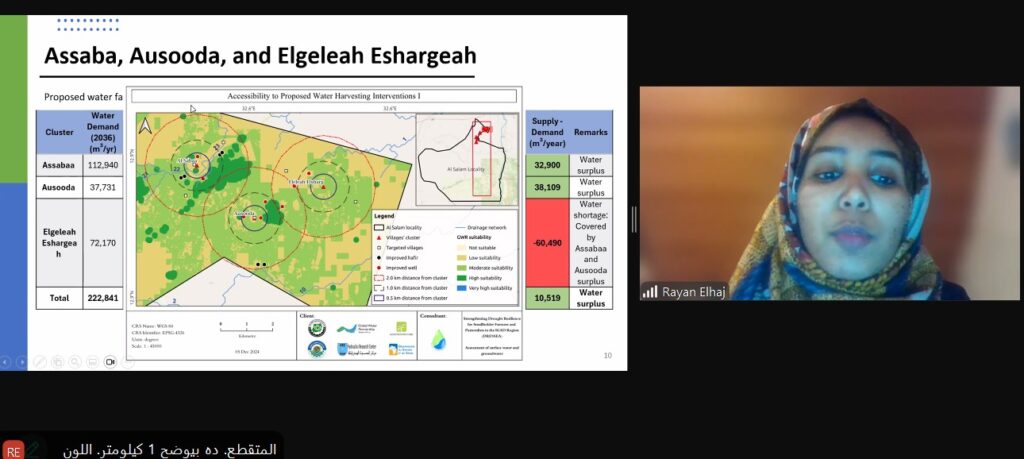
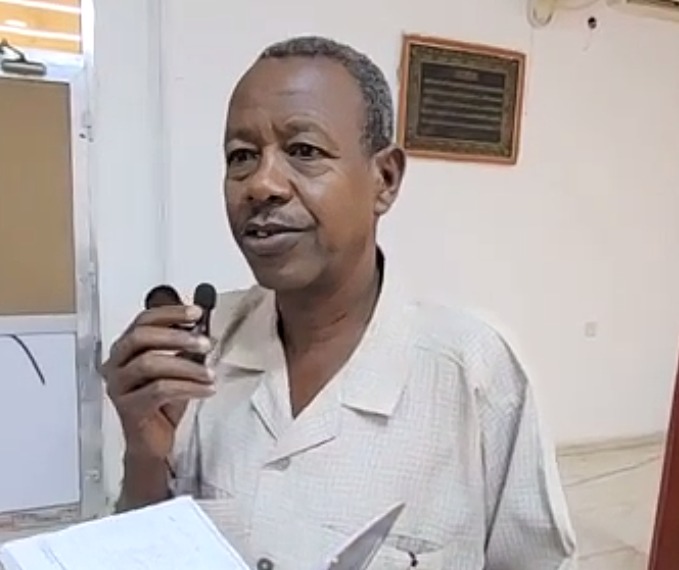
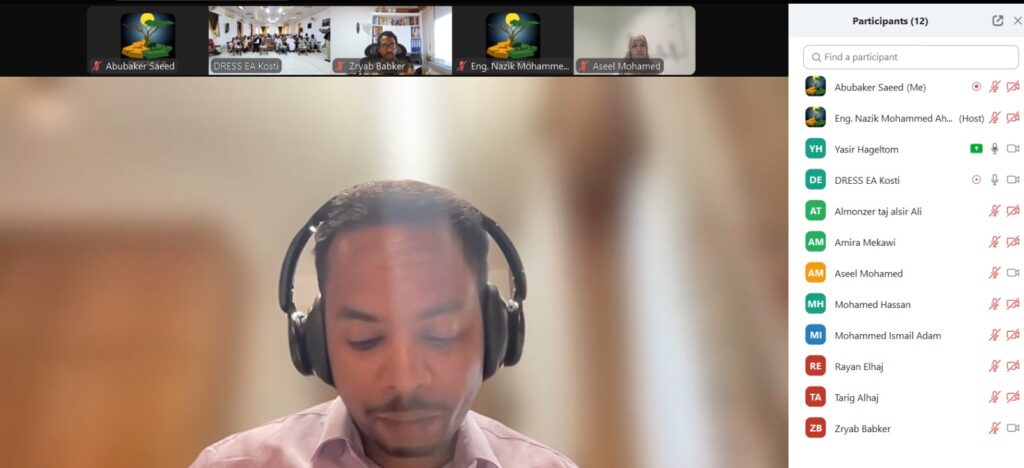
In the closing session of the day, participants shared their feedback and recommendations regarding the proposed interventions. The importance of taking tangible steps to develop sustainable solutions for water resource management and soil protection was emphasized.
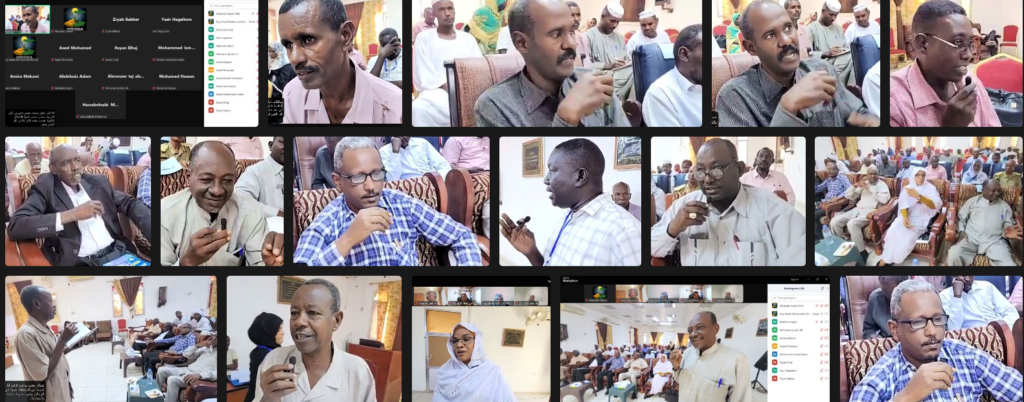
Conclusion:
The workshop aimed to provide strategic solutions to address drought challenges in the region, with a focus on drought management strategies, capacity-building initiatives, and innovative solutions for water resources management and water harvesting. Over the course of the three days, experts and participants exchanged knowledge and recommendations to ensure the effective implementation of strategies that support agricultural and pastoral communities in coping with drought, while emphasizing the importance of ongoing coordination and monitoring to ensure the project’s long-term success.
